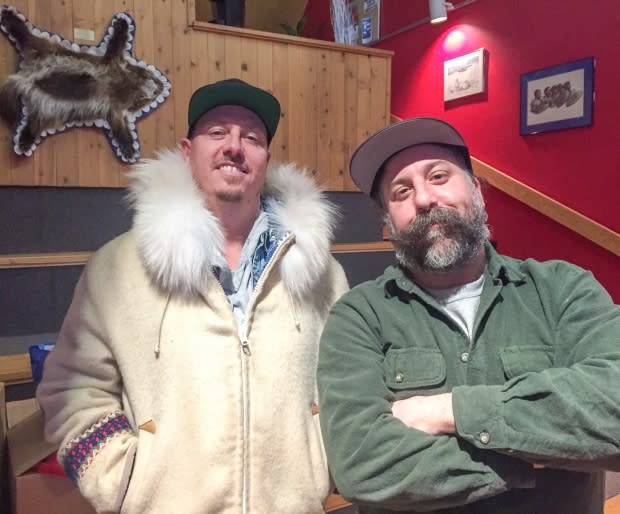Dead North wants to make sure filmmakers respect Indigenous stories, cultures
Are you the right person to tell this story?
That's what the organizers of the Dead North Film Festival want filmmakers to ask themselves when they're submitting movies that include Indigenous stories, culture or language.
The annual Yellowknife festival showcases short horror films from across the circumpolar North. This year the organizers, Pablo Saravanja and Jay Bulckaert, are implementing protocols to ensure filmmakers respect Indigenous storytelling.
Those guidelines are in a document published by the imagineNATIVE Institute, called On-Screen Protocols and Pathways. It's a guide for people in the film industry when it comes to working with First Nations, Métis and Inuit communities, cultures and stories.
"It's a dialogue and it's just something that every filmmaker, media producer, probably radio storyteller in the country should read," said Saravanja.
The 80-page document includes sections on working on Indigenous lands and in Indigenous communities, as well as building relationships with an Indigenous crew or cast. One guiding principle is: "Nothing about us without us."
We just simply won't accept it. - Jay Bulckaert, Dead North organizer
Bulckaert said there was an issue in recent years where an Indigenous filmmaker was adapting a story that wasn't part of his nation. While it was dealt with respectfully, Bulckaert said they liked the idea of adopting some official protocol for the film fest.
"We already had rules about, you know, we won't accept any content that is hate speech or racist or misogynistic or anything like that," Bulckaert said.
He said they'll adopt these protocols with the same intention.
"If someone delivers a script that is counter to the spirit of that in some kind of egregious way, we just simply won't accept it."

Indigenous people need 'narrative sovereignty'
In an interview last month, Jesse Wente, the director of the Indigenous Screen Office, told CBC that the document is the result of years of advocacy by Indigenous peoples around how their stories are told and by whom.
"In the history of cinema, the group that has been documented the most in the history of cinema is Indigenous people, and 99.9 per cent of those movies have not been made by Indigenous people," Wente said.
Wente, who was an advisor on the protocols, says the document aims to build better relationships and practices between media and Indigenous people.
"One of the very principles we're talking about is, when it comes to the telling of Indigenous stories, is to really ask yourself if you are the right person to tell that story."
Wente said storytelling can be used as a tool of colonialism, so the document touches on cultural appropriation as well as narrative sovereignty .
"What I mean by that is the ability to control our own stories, from funding decisions, through to the creative decisions of the piece, distribution — all of it," Wente said.
The document isn't just for people in the screen industry, it's also a guide for Indigenous communities about the role they can play in filmmaking, like making sure they're included in the early stages of development and that they get proper credit.
For Bulckaert and Saravanja, they suspect the protocols will be well accepted in the North.
"I think people in the North are pretty woke to this type of thing," Bulckaert said.
"We're small and we're in the North. We're kind of nobody. But if we can sort of help lead the way in one way or another toward a better society or a better film world, then we'd like to play our part."

